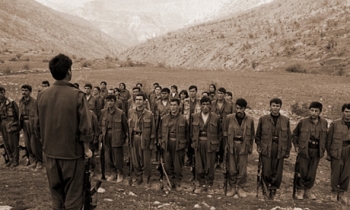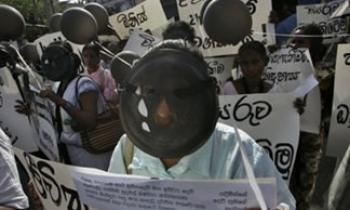BUCHAREST, Romania: A Bucharest court on Wednesday sentenced a fugitive Syrian-born businessman to 20 years in prison on charges that he ordered the kidnapping of three Romanian journalists in Iraq.
Omar Hayssam, a prosperous businessman, fled Romania last year after being temporarily released by a judge to seek treatment for cancer that was unavailable in the prison hospital. He was sentenced in absentia, although his lawyer was present in court.
The three journalists were kidnapped in Iraq in 2005 and held by a group that demanded Romania withdraw its 700 troops from the country. The three were freed after nearly two months in captivity following negotiations between Romanian authorities and the kidnappers.
Prosecutors claimed Hayssam, a prosperous businessman in Romania, organized the kidnapping because he was being investigated in several cases of economic fraud and was looking for a way to leave the country with a large sum of money. His businesses included mineral water bottling, shops, a car dealership and manufacturing.
Hayssam's disappearance after his release prompted the resignation of three directors of Romania's main intelligence agencies. The country's attorney general and a prosecutor in charge of the case also stepped down.The court, which ruled that the kidnapping amounted to terrorism, also ordered Hayssam to pay €2 million (US$2.67 million) to each of the three journalists for their suffering.
"Hayssam got what he deserved," said Ovidiu Ohanesian, one of the journalists. But he said he believed that not all the culprits in the kidnapping were behind bars.
Hayssam's lawyer said his client would appeal.
"There is no evidence to prove his guilt," he said. Hayssam and his lawyers claimed the case was resting solely on statements by the journalists' guide and Hayssam's business partner Mohammed Munaf, who is in coalition custody in Iraq. Munaf, who initially incriminated himself and Hayssam in the kidnapping in statements made to investigators, later retracted his confession, alleging that it was coerced.
In October, an Iraqi judge convicted the Iraqi-born Munaf and sentenced him to death. Munaf, a naturalized U.S. citizen, claimed his trial was flawed and his lawyers asked the U.S. Supreme Court to prevent U.S. troops from turning him over to Iraqi authorities to be executed.
Munaf's attorneys said he was held with the three journalists for 55 days before they were released. The Romanian Embassy turned Munaf over to U.S. authorities in Baghdad. The journalists, who were blindfolded during their captivity, also believe that Munaf was held with them as they often heard his voice in the cellar where they were being held.









